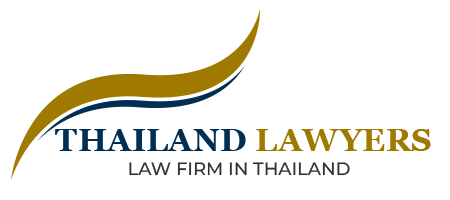Thailand Branch Office Setup. Foreign companies intending to carry on business in Thailand may do so through various legal structures, including Thai limited companies, representative offices, and branch offices. Among these, the branch office offers a middle path: it allows the foreign parent to conduct business directly in Thailand without establishing a separate juristic person under Thai law.
However, because the branch is not legally distinct from the head office, it is subject to direct liability, licensing under the Foreign Business Act (FBA), and strict tax and reporting requirements. This article analyzes the legal status, registration procedures, operational scope, and risks associated with branch offices in Thailand.
II. Legal Nature and Status of a Branch Office
A branch office is an extension of the foreign parent company. It does not constitute a new juristic person under Thai law, and its legal identity is inseparable from the head office. It can engage in revenue-generating activities, unlike a representative office, but is subject to greater regulatory scrutiny.
Key Legal Features:
-
Operates under the name of the foreign company
-
Liabilities extend to the parent company
-
Requires Foreign Business License (FBL) for most activities
-
Must comply with Thai labor, tax, and commercial laws
III. Regulatory Basis
The operation of a foreign branch office is primarily regulated under:
-
Foreign Business Act B.E. 2542 (1999)
-
Civil and Commercial Code (CCC)
-
Revenue Code
-
Exchange Control Act B.E. 2485 (1942)
-
Ministerial Regulations and Departmental Notifications
If the branch engages in a restricted business under the FBA, it must obtain a Foreign Business License (FBL) from the Department of Business Development (DBD), Ministry of Commerce.
IV. Scope of Permitted Activities
Branch offices are permitted to:
-
Sign contracts and generate revenue
-
Provide services to clients in Thailand
-
Employ local and foreign staff
-
Lease office space and open bank accounts
-
Incur liabilities in Thailand on behalf of the parent company
However, they must confine their activities to those declared during licensing. Unauthorized expansion of business activities can lead to penalties and license revocation.
V. Licensing Requirements under the Foreign Business Act
A. Determining Business Activity
Foreign-owned branch offices engaging in activities listed under Schedule 2 or Schedule 3 of the FBA must obtain a license before commencing operations.
Examples of Schedule 3 activities:
-
Retail or wholesale trade
-
Engineering or architectural services
-
Construction
-
Advertising and consulting
B. Application for Foreign Business License (FBL)
Required Documents:
-
Affidavit and company registration documents from home country
-
Power of Attorney appointing branch manager
-
Detailed business plan and scope of services
-
Estimated expense and revenue forecast
-
Proof of capital remittance
-
Identity documents of authorized signatories
Capital Requirement:
-
Minimum capital of THB 3 million per business activity, to be remitted within 3 years
-
First 25% must be remitted within the first 3 months after receiving approval
Failure to remit the required capital is grounds for license cancellation.
Processing Time:
-
60 to 90 days from the date of full application submission
-
Reviewed by the Foreign Business Committee for Schedule 2 activities
-
Director-General of DBD may approve Schedule 3 activities
VI. Taxation and Reporting Obligations
Although not a Thai company, a branch office is treated as a permanent establishment under Thai tax law and is therefore subject to:
A. Corporate Income Tax (CIT)
-
Taxed at 20% on net profits derived from Thai operations
-
Allowed to deduct only Thailand-related expenses
-
No access to SME tax benefits or certain incentives
B. Withholding Tax (WHT)
-
WHT applies to payments made by the branch (e.g., rent, services, royalties)
-
Remittance of profits to head office may be subject to 10% WHT, unless a DTA applies
C. VAT and Specific Business Tax
-
VAT registration required if annual turnover exceeds THB 1.8 million
-
Must file monthly VAT returns (Form PP.30)
D. Financial Statements and Audits
-
Annual financial statements must be audited by a licensed Thai CPA
-
Must be filed with the DBD and Revenue Department within 150 days of fiscal year-end
VII. Labor and Immigration Compliance
A. Employment Law
-
Thai labor law applies fully
-
Statutory benefits include minimum wage, paid leave, severance, etc.
B. Hiring Foreign Employees
Subject to standard work permit and visa (Non-B) requirements:
-
Branch must be registered and licensed before sponsoring visas
-
4 Thai employees per foreigner may be required, unless exempt (e.g., under BOI)
VIII. Legal Liability and Dispute Exposure
As a branch is not a separate entity:
-
The foreign parent is fully liable for obligations incurred by the branch
-
Contracts are executed in the name of the parent company
-
Creditors may seek enforcement against foreign assets, subject to recognition and enforcement proceedings
This direct attribution of liability is a key legal distinction from Thai limited companies, which enjoy limited liability protections.
IX. Comparison with Other Structures
| Aspect | Branch Office | Representative Office | Thai Limited Company |
|---|---|---|---|
| Legal Status | Same as foreign head office | Same as foreign head office | Separate juristic person |
| Revenue-Generating | Yes | No | Yes |
| Licensing | FBL required | No FBL (but must notify DBD) | Not required (unless foreign shareholding exceeds 49%) |
| Liability | Parent company directly liable | Parent company directly liable | Liability limited to share capital |
| Taxation | Full Thai tax obligations | No income tax (non-revenue) | Full Thai tax obligations |
X. Dissolution and Exit Procedures
To close a branch office:
-
Notify the DBD and Revenue Department
-
De-register taxes and VAT
-
Submit final financial statements and tax clearance
-
Apply for license cancellation
-
Repay capital (if any remains)
Failure to properly dissolve the branch may result in tax exposure, blacklisting, and inability to remit funds.
XI. Conclusion
A branch office in Thailand is a viable structure for foreign companies seeking to maintain legal and financial continuity with the parent, while engaging in revenue-generating activities in Thailand. However, the trade-off includes:
-
Direct liability exposure
-
Strict licensing and capital requirements
-
No corporate veil or local legal autonomy
For these reasons, branch office structures are best suited for:
-
Regulated industries (e.g., banking, airlines)
-
Project-specific activities
-
Parent-controlled operations requiring full integration

